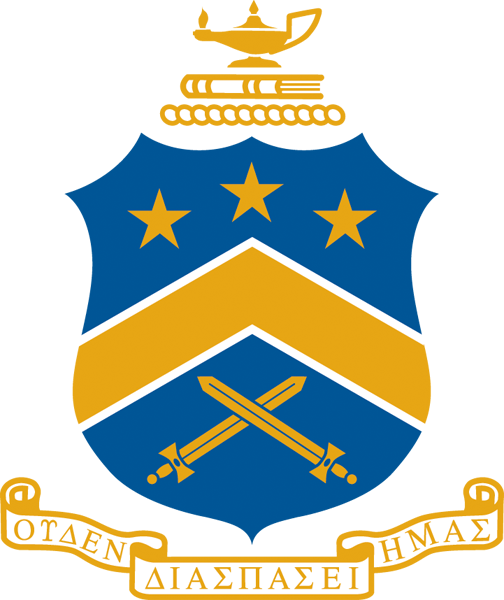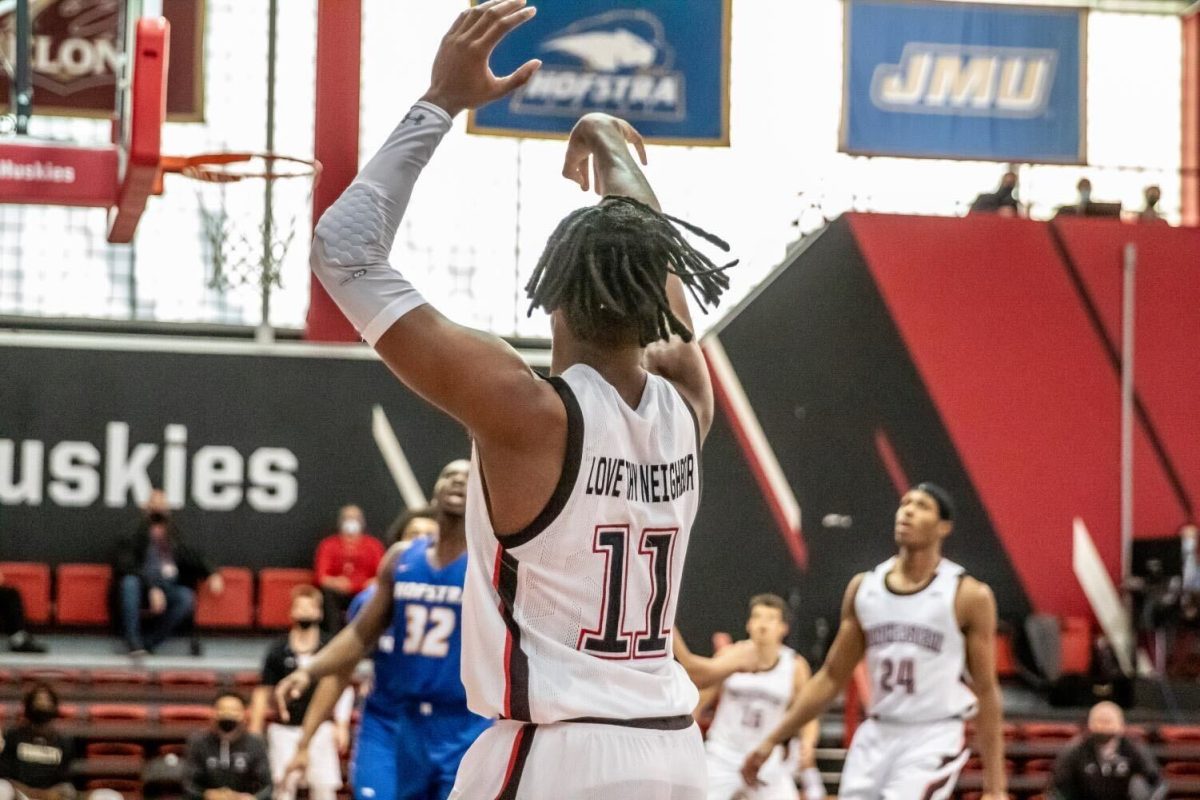NU’s Pi Kappa Phi chapter focusing on building its identity
October 9, 2019
Northeastern isn’t a fraternity school, but it looks more like one every year. This spring, the university welcomed Pi Kappa Phi as the 10th fraternity sanctioned by the Interfraternity Council, or IFC, on campus.
The national chapter sent representatives to recruit “founding fathers,” an initial group of brothers responsible for starting the local chapter.
“The national chapter representatives basically just rounded up as many people as they could, gave out bids and hoped it stuck,” said fourth-year mechanical engineering major and Pi Kappa Phi president Duncan Legget.
Second-year business administration major and scholarship chair Ryan Lees said some students viewed Pi Kappa Phi as “an easy way to join a fraternity” because of the minimal rush requirements in the spring, but he emphasized that those students have mostly relinquished their membership.
Legget said that the biggest challenge is performing initial required tasks like coordinating with the administration and running events while also planning for the future.
“It’s like building the airplane while we are flying it,” he said. “No one told us how to do this.”
The fraternity’s leadership faced some hurdles following its conception.
“Not having the infrastructure previously there was probably one of the big challenges,” said third-year business administration major and merchandise chair Stephano Barrios-Pompeii.
Legget pointed to social cohesiveness as a concern.
“We were a little bit worried at first and even, to be honest, in recent weeks about brotherhood, because we are so new and people have cliques,” Legget said. “But … I do think we are starting to come together as one.”
Fourth-year business administration major and recruitment chair Oliver Key said member involvement is slightly lagging.
“Right now it’s e-board, e-board, e-board. They do a lot of work, and the 70 guys get to enjoy the benefits of that,” Key said. “We need to make sure that everyone gets more involved.”
Barrios-Pompeii said he welcomes these “growing pains.”
“We are all in it for the right reasons, and we all want to be part of something that is bigger and better than we are and to have an opportunity to get involved and really make an impact on this campus,” he said. “I think that’s all we really need to get started.”
Compared with the older fraternities at Northeastern, “Pi Kap” has less name recognition, possibly explaining its lower-than-average rush class this fall. However, it’s hard to distinguish Pi Kappa Phi from the more established fraternities.
The fraternity is facilitating fundraisers, philanthropy events, socials and regular chapter meetings. According to Key, Pi Kappa Phi raised the second most money for Relay for Life this past spring. They have a notable member in Chris Brown, the Student Government Association president.
As the fraternity’s e-board lays down the organizational groundwork, their hardest task may be creating a defined culture. At the IFC info session in early September that filled the Curry ballroom with prospective new members, Pi Kappa Phi’s representatives marketed their fraternity as presenting an opportunity to help build the fraternity’s identity.
Pi Kappa Phi consists mostly of business administration and engineering majors. Legget said he believes the fraternity’s composition has helped it grow.
“We’re all entrepreneurs here basically. A lot of people wanted to build something rather than just join something,” Legget said. “They wanted to be active in it from day one.”
Third-year biology major Justin Canuel said he likes Pi Kappa Phi because it motivates him to strive towards personal development. Brothers are always encouraging each other to get more involved at Northeastern and in the community, he said.
“Self-improvement is highly valued in most members here that I’ve spoken to. We are always pushing ourselves to do better,” he said. The fraternity’s average GPA is 3.41.
Legget said he hopes his fraternity will be tight-knit and community-oriented. He wants to create a space for brothers to stay close while on opposite co-op cycles.
Barrios-Pompeii said he hopes to push against stereotypes associated with Greek life.
“[I want Pi Kappa Phi to be] doing things for the betterment of others, not just being a ‘frat’ per se, but a fraternity — an organization with a goal,” Barrios-Pompeii said.
According to fifth-year communications major Alex Bensley, the fraternity doesn’t have a record of any major disciplinary issues. Barrios-Pompeii attributes this to leadership “making sure that [the brothers] are well aware of the consequences and how it affects not just themselves as a person, but us.”
Looking forward, the brothers are optimistic. Key said he wants to continue building the fraternity and “keep the momentum going.”
Barrios-Pompeii said he is excited to leave behind a legacy.
“You can come back in 20 years, and you can see kids wearing your letters and you can say, ‘I built that,’” he said. “That fraternity 20 years from now starts now.”







